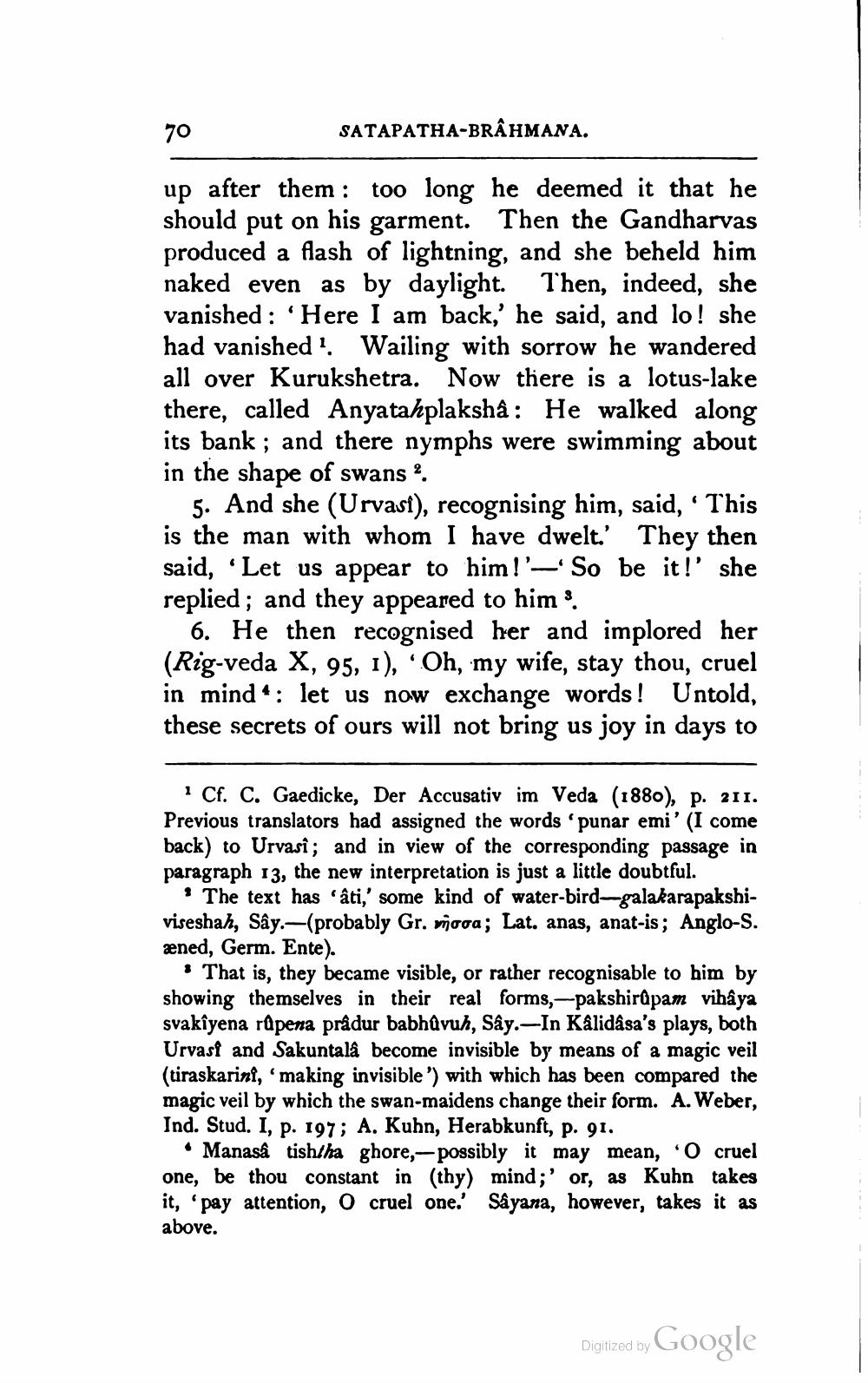________________
70
SATAPATHA-BRAHMANA.
up after them: too long he deemed it that he should put on his garment. Then the Gandharvas produced a flash of lightning, and she beheld him naked even as by daylight. Then, indeed, she vanished : 'Here I am back,' he said, and lo! she had vanished! Wailing with sorrow he wandered all over Kurukshetra. Now there is a lotus-lake there, called Anyatahplakshâ: He walked along its bank ; and there nymphs were swimming about in the shape of swans 2.
5. And she (Urvasi), recognising him, said, “This is the man with whom I have dwelt.' They then said, 'Let us appear to him!'-' So be it!' she replied; and they appeared to him
6. He then recognised her and implored her (Rig-veda X, 95, I), 'Oh, my wife, stay thou, cruel in mind + : let us now exchange words! Untold, these secrets of ours will not bring us joy in days to
Cf. C. Gaedicke, Der Accusativ im Veda (1880), p. 211. Previous translators had assigned the words 'punar emi' (1 come back) to Urvasi; and in view of the corresponding passage in paragraph 13, the new interpretation is just a little doubtful.
The text has 'âti,' some kind of water-bird-galakarapakshiviseshah, Sây.-(probably Gr. mora; Lat, anas, anat-is; Anglo-S. æned, Germ. Ente).
. That is, they became visible, or rather recognisable to him by showing themselves in their real forms,-pakshirapam vibaya svakîyena rûpena pradur babhúruh, Sây.-In Kalidasa's plays, both Urvast and Sakuntala become invisible by means of a magic veil (tiraskarint, 'making invisible') with which has been compared the magic veil by which the swan-maidens change their form. A. Weber, Ind. Stud. I, p. 197; A. Kuhn, Herabkunft, p. 91.
• Manasa tishtha ghore,- possibly it may mean, o cruel one, be thou constant in (thy) mind;' or, as Kuhn takes it, 'pay attention, o cruel one.' Sâyana, however, takes it as above.
Digitized by Google




